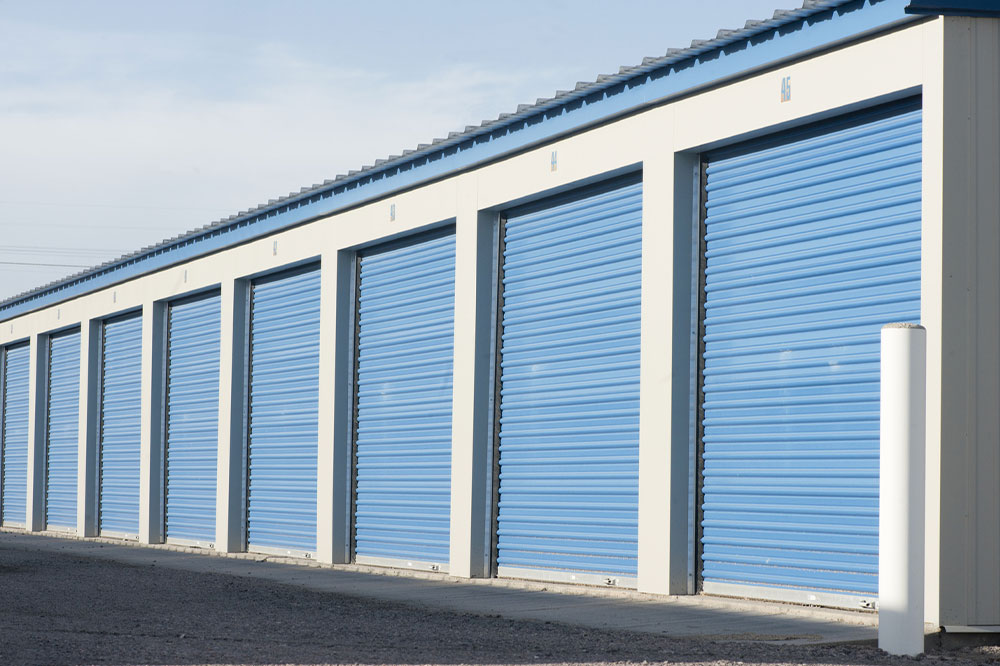Tips for finding affordable storage units
With an increasingly consumerist economy and the shrinking size of homes, it has become difficult to store everything in one place. That is where storage units come in. The business model provides people with a self-service space, such as rooms, lockers, containers, or outdoor spaces to keep their extra belongings. Storage units are available on a rental basis, so one has a safe and secure place to store their stuff when needed.
Tips to save money on storage units
Individuals or businesses usually use storage units during transitional periods like moving, downsizing, traveling, or renovating. Whatever the requirements, with a little research and patience, it is possible to get good deals on storage units.

- Shop around
Finding a high-quality but affordable storage unit demands research. You can look online for affordable storage units near your area and go through the websites of different facilities. Avoid settling for the first option you come across. Compare prices, unit sizes, and amenities to find the best value. Thorough research also ensures you don’t need to move the belongings too often, thus avoiding unnecessary expenses. - Consider location
Storage units in urban areas or prime locations are often more expensive. If you are flexible with the location, you can look for facilities in less densely populated areas or on the city’s outskirts to potentially find lower rates.
Choose a storage unit size that meets your needs without being too large. A smaller unit will cost less, so you can assess your belongings carefully to avoid paying for unnecessary space.
Look for facilities that offer flexible lease terms. This can include month-to-month or short-term lease options, auto-renewal, flexible exit options, or long-term lease discounts. Some companies may also offer a prorated lease, allowing you to pay only for the days you occupy the unit.
If you know someone who also needs storage, you can consider sharing a unit to split the cost.
Many facilities offer promotions for new customers, such as the first month being free. In addition, many companies reduce their prices when the booking is done entirely online. So it is recommended to check the online rates of a company even if you have visited the facility.
At times, facilities provide additional discounts on storage units for military personnel, college students, or seniors. They may not always be advertised on the website, so it’s a good idea to inquire about these discounts with the facility directly.
Some facilities provide free trucks for transport to the unit location to attract renters, which can save significant money. You can ask for any additional perks during the research stage.
Summer is one of the peak moving seasons. Since facilities experience higher demand, consider securing a storage unit during less hectic times to get low prices. Committing to a longer lease or opting for a holiday season can also get you discounted rates.
Inquire about any additional fees, such as administrative fees, late payment fees, access fees, cleaning or damage fees, or insurance costs. Some facilities may also require a security deposit, which is typically refunded if the unit is left undamaged upon moving out.
Some facilities offer lower rates for reservations made in advance. Planning and booking a unit early can help you save money.
Explore alternatives, like outdoor storage options for vehicles or items that don’t require climate control.
Inquire about the possibility of negotiating the rental rate, especially if you are committing to a longer lease. You can also get a good bargain if a facility has multiple vacant units.
Before renting a unit, you can declutter and downsize your belongings. This can help you choose a smaller unit and save money.
Ask friends, family, or colleagues if they know of any storage facilities with good rates and reviews.
If allowed or possible, you can stack items vertically to make the most of the storage unit’s height, allowing you to rent a smaller unit.
Storage unit prices
Usually, storage unit rent is billed every month. Prices can depend on multiple factors. A small unit can cost as little as $10, while a larger storage space can cost $300 per month. Usually, climate-controlled storage units cost $190 monthly, but the price may go up if you opt for add-on facilities.
Factors that affect the price of storage units
Most common factors that determine the cost of a storage unit include the following:
- Location
The location of the facility can significantly influence storage unit prices. Units in urban areas or areas with high demand might be more expensive than those in suburban or rural locations. - Unit size
Larger units will generally cost more than smaller ones. Common unit sizes include small lockers, small rooms, medium-sized units, and larger garage-like spaces. - Climate control
Climate-controlled units, which maintain a consistent temperature and humidity level, are typically more expensive than standard units. Climate control is important for storing delicate items like electronics, documents, artwork, instruments, household appliances, wooden or leather furniture, or antiques. - Facility amenities
Facilities that offer additional amenities such as 24/7 access, enhanced security measures, on-site management, coded access, camera surveillance, pest control, and moving equipment may have higher prices. - Demand and availability
Prices can vary based on supply and demand in a specific area. Peak moving seasons or high-demand locations can see a price hike. - Lease term
The length of the lease agreement can impact pricing. Longer-term leases may come with discounts compared to month-to-month rentals.
You need to remember that the specifics of the rental process can vary between facilities, so it’s a good idea to contact the facility you are interested in for pricing directly.
